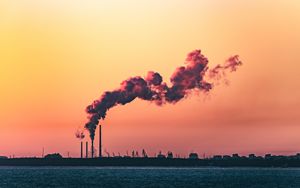(Finance) – The question of fuels fossils it is still too high to reach the Paris Agreement goal of limiting the increase in global average temperatures to 1.5°C. This is the conclusion reached by the World Energy Outlook 2023 of theInternational Energy Agency (IEA). According to the IEA, in fact, even more incisive measures would be necessary to keep alive the objective of limiting the heating global at 1.5°C.
“This risks not only worsening the impacts climate after a year of heat record, but also to undermine the security of the energy system, which was built for a cooler world with less extreme weather events – we read in the note that accompanied the publication of the report -. Bend the curve of emissions on a path consistent with 1.5°C remains possible but very difficult. The costs of inaction could be enormous: despite the impressive growth ofclean energy Based on current policies, global emissions would remain high enough to raise global average temperatures by about 2.4°C this century, well above the key threshold set in theParis Agreement“.
In particular, the World Energy Outlook 2023 underlined that despite the precariousness of the energy markets natural gas – characterized by security fears and price surges after Russia cut the supplies to Europe – an unprecedented increase in new projects of liquefied natural gas (LNG), which will come online from 2025, is expected to add more than 250 billion cubic meters per year of new capacity by 2030, equal to approximately 45% of the current global supply of LNG. The increase in capacity will reduce prices and concerns about gas supply, but it also risks creating an oversupply, given that the growth of request global of gas has slowed considerably compared to the 2010s.
According to the report’s estimates, the total energy demand of the China will reach its peak around the middle of this decade, while the continued dynamic growth of clean energy will decrease the Asian country’s demand for fossil fuels and emissions.
“The transition to clean energy is happening around the world and it is unstoppable. It’s not a question of ‘if’, it’s just a question of ‘how soon’ – and the sooner the better for all of us,” said the IEA Executive Director, Fatih Birol . “Governments, companies and investors must support clean energy transitions rather than hinder them,” he added. The benefits offered are immense, including new industrial opportunities and jobs, greater energy security, cleaner air, universal access to energy and a safer climate for all. Taking into account the ongoing tensions and volatility in today’s traditional energy markets, claims that oil and gas represent safe choices for the world’s energy and climate future appear weaker than ever.”
(Photo: Marek Piwnicki on Unsplash)
